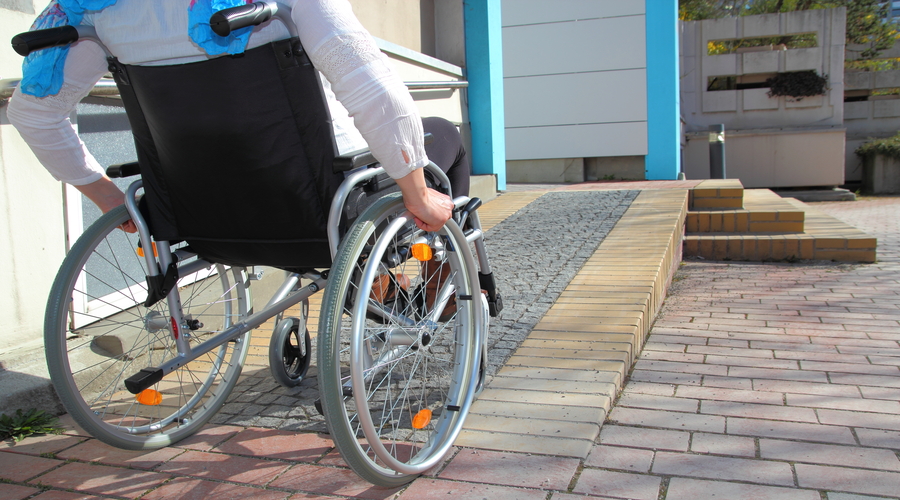What Are The 4 Main Types Of Permanent Disability?

Living with a permanent disability is already challenging. It leaves you emotionally and financially drained and makes you feel helpless and uncertain. It can influence your life's varied aspects, from your ability to work and everyday activities to social relationships.
Fortunately, Social Security Disability Benefits are available to ensure your suffering doesn’t become trauma. But before everything, you need to understand the type of permanent disability that comes under the umbrella of Social Security Disability Benefits.
This blog covers the types of disabilities and how to apply for permanent disability. You can also get in touch with an experienced disability attorney in Sacramento to learn about your legal considerations.
Read till the end to ensure your claim gets honored and is not rejected due to any misunderstanding.
The SSA (Social Security Administration) has clear standards for what conditions may qualify. Well, first, you need to know what permanent disability means. So, it means that your medical condition has stabilized, but you’ve suffered lasting limitations that impact your ability to work and live as you once did!
Meeting the permanent disability California requirements doesn’t just depend on the diagnosis - it hinges on documented evidence showing how your condition limits your capabilities. The SSA uses a “Blue Book” that lists qualifying impairments, which include -
- Cancer Diagnosis
- Cardiovascular Issues
- Neurological Disorders
- Mental Health Conditions
- Immune System Disorder
- Musculoskeletal Disorders
Every claim is different. That’s why approval depends on how much your condition limits your ability to work. The process can be challenging, but with an experienced lawyer, you won’t have to worry about losing the benefits.
Four Types of Permanent Disabilities
Here are the 4 types of permanent disabilities -
- Physical Disabilities - Physical disabilities are common types of permanent disability that obstruct a person's movement, dexterity, or physical function. These conditions mostly don’t allow the person to perform physical work. Common examples of physical disabilities are - spinal cord injuries, amputations, paralysis, muscular dystrophy, and cerebral palsy. Individuals suffering from physical impairments may require mobility devices like wheelchairs, prosthetic limbs, or mobility aids to help them get around in their everyday lives. If you're filing for SSD, it is important to provide medical documents that support the claim.
- Cognitive Disabilities - Cognitive disabilities influence a person's intellectual functioning, memory, or problem-solving abilities. These conditions make it challenging for people to process any sort of information and grasp new things. Most importantly, they can't partake in activities requiring mental focus and reasoning.
Qualifying diagnoses often include conditions like traumatic brain injury, autism spectrum disorder, and intellectual developmental disorders, to name a few. SSD claims must be backed by neuropsychological evaluations, IQ testing, and reports showing functional limitations.
- Sensory Disabilities - An individual affected with sensory disabilities may lose their sensory perception. Sight, hearing, touch, taste, and smell are the five senses that are impacted by this disability. However, vision and hearing loss are prime sensory disabilities. These disabilities often cause barriers to communication, which hinders work performance as well. Individuals suffering from sensory disabilities need to demonstrate their disability that hinders their ability to perform basic work-related activities - even with the use of corrective devices like glasses or hearing aids.
- Psychological Disabilities - Psychological disabilities, also known as mental health disabilities, deeply affect a person’s thoughts, emotions, behaviors, and how they relate to others. These conditions can be episodic or chronic and are sometimes less visible than physical conditions.
Common psychological disabilities include depression, anxiety, bipolar disorders, schizophrenia, PTSD, and other psychiatric conditions. SSD claims for psychological disabilities require properly documented treatment history, psychiatric evaluations, and evidence that the symptoms are persistent and resistant to treatment.
How To Apply For Permanent Disability?
Here’s how you can apply for permanent disability -
- Gather all the relevant medical documents
- Get a formal diagnosis from a licensed healthcare provider
- Notify your employer if the disability is due to work
- File a claim with Social Security online or offline
- Complete disability application and work history
- Submit the medical evidence and other supporting documents
- Attend the SSA consultative exams, if requested
- Check the status regularly, and ensure to respond promptly
Applying can be tiresome work and might overwhelm you. So, get in touch with the best SSD lawyers in your area, as they can help you file the application and fight for your claim.
What Are The Legal Considerations For Permanent Disability, California?
Now that we've learned about the key permanent disabilities, it's imperative to get acquainted with the legal alternatives that support your disability. Consult a reliable and knowledgeable disability lawyer in Sacramento to avail more information.
Below, we have enlisted the general legal considerations for permanent disabilities.
Workers’ Compensation - If you sustain on-the-job injuries and they end up as permanent disability, you are eligible to seek compensation under the act of workers' compensation policy. With the comprehensive assistance of local disability lawyers, you can apply for disability benefits and vocational rehabilitation services.
Disability Benefits - There are several government programs, such as SSDI, offered by the SSA to individuals with permanent disabilities. These benefits aim to provide them with financial support and other healthcare, employment, housing, and education services.
Social Security Disability - Social Security Administration (SSA) provides disability benefits to individuals with permanent disabilities. If your impairment prevents you from partaking in Substantial Gainful Activity (SGA), you are entitled to seek SSD benefits with the assistance of a Social Security attorney in Sacramento.
Accessibility Laws - Individuals with permanent disabilities are protected under the Americans with Disabilities Act (ADA). These anti-discrimination laws protect the interest of disabled persons from discernment in housing, employment, and public services.
Takeaway
Permanent disability includes conditions that last for 12 months or more. These conditions prevent an individual from resuming work or performing daily activities. However, being permanently disabled can be challenging. Fortunately, you can give your life a new turn by seeking disability benefits and providing financial stability.
Additionally, it is important to understand what permanent disability qualifies for SSDI. You can consult an experienced disability lawyer to help you apply and guide you from the beginning.
Looking for Permanent Disability Lawyers Who Can Fight For Your Right? Get In Touch With Hadley And Fraulob!
At Hadley and Fraulob, we have been proudly serving for over 40 years and helped thousands of clients secure their disability benefits. Our lawyers, with a 90% success rate, can help you secure a claim for permanent disability in California.
Call us now to book an appointment!
